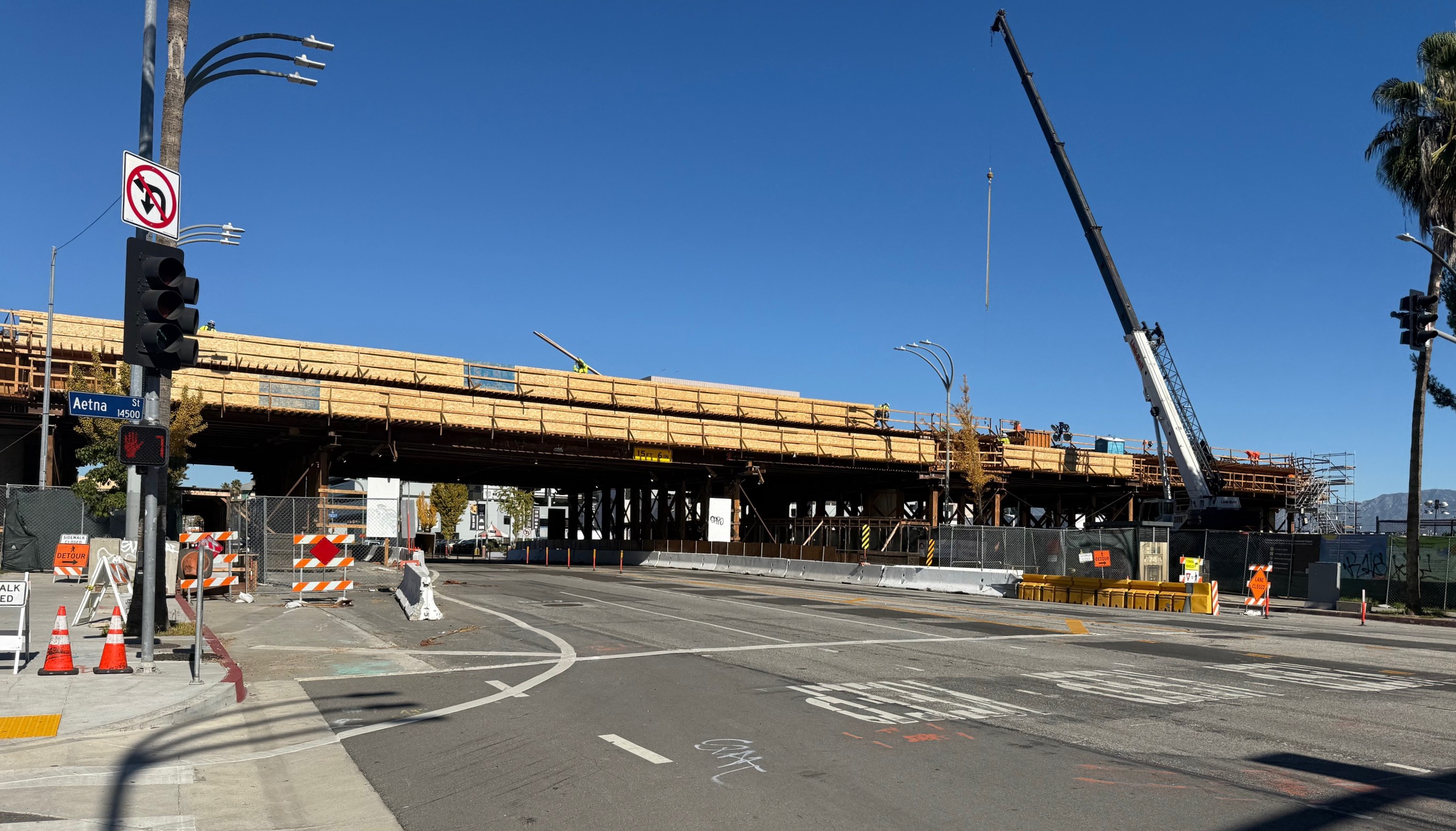The creation of regional planning bodies (which
carry the official designation of Metropolitan Planning Organizations)
to implement federal mandates tied to funding transportation projects
began in the 1960s.
http://www.ampo.org/content/
Formed on October 28, 1965, the Southern California
Association of Governments covers the six counties of Ventura,
Riverside, San Bernardino, Los Angeles, Orange and Imperial. Since its
early years SCAG's role has greatly expanded as new
mandates from the federal and state governments have made such bodies
responsible for developing regional plans for transportation, growth
management, housing development, air quality and other issues of
regional significance such as water quality.
http://scag.ca.gov/history.htm
SCAG's main power is that to apply for federal funding projects must be
included as part of the Regional Transportation Plan SCAG prepares on
what is currently a four year cycle. For about 6 years I sat on the
Plans and Programs Technical Advisory Committee, which provides
technical input to SCAG staff on the Plan as it is prepared. So I am
familiar with the process, which at times was beyond mind numbing in
its complexity.
http://scag.ca.gov/pptac/
Metropolitan Planning Organizations that covers areas with a population
exceeding 200,000 are subject to periodic federal certification
reviews. The Government Accountability Office in its latest review of
the status of MPOs noted "The certification reviews focus on procedural compliance with planning requirements, not transportation outcomes. MPOs generally view this federal process as pro forma in nature and place a greater value on informal assistance provided by both federal and state governments"
http://www.gao.gov/new.items/
Be that as it may, the Federal Highway
Administration (FHWA) and the Federal Transit Administration (FTA) are
about to commence the quadrennial federal certification review of the
Southern California Association of Governments (SCAG) transportation
planning process.
http://scag.ca.gov/pdfs/FHWA-
This
includes a public listening session staff from the two federal agencies
will lead on Wednesday, December 2, 2009 beginning at 5:30 p.m. at
SCAG's offices, 818 West 7th Street (12th Floor) in downtown Los
Angeles across the street from the 7th/Metro Metrorail station.
http://scag.ca.gov/directions.
For
those who don't want to make the journey to downtown L.A., remote sites
for videoconferencing have been arranged for adjacent counties:
SCAG Imperial County Regional Office
1224 W. State Street, Suite B
El Centro, CA 92243
SCAG Orange County Regional Office
OCTA Building
600 South Main Street, 9th Floor
Orange, CA 92863
SCAG Riverside County Regional Office
3403 10th Street, Suite 805
Riverside, CA 92501
SCAG San Bernardino County Regional Office
Santa Fe Depot
1170 West Third Street, Suite 140
San Bernardino, CA 92418
SCAG Ventura County Regional Office
950 County Square Drive, Suite 101
Ventura, CA 93003
Oral and written comments may be presented at the meeting. Written comments can also be sent via e-mail to cert.review@fhwa.dot.gov or by regular mail to:
Michelle Noch
Community Planner
FHWA L.A. Metro Office
888 S. Figueroa Street, Suite 1850
Los Angeles, CA 90017
Public
comments will be accepted through December 15, 2009. For additional
information about the SCAG federal certification process or the
December 2 public listening session, please call 213-202-3953.
In
accordance with the Americans with Disabilities ACT, persons requiring
modification of accommodations in order to participate in this meeting
should notify FTA/FHWA Los Angeles Metro Office (213-202-3950) 72 hours
in advance of the meeting.
This public session will be
supplemented by the FHWA/FTA team interviewing members of SCAG's
Regional Council and local stakeholders (such as transit agencies) on
the day following the listening session.
Some months later after evaluation and review the agencies will issue a
determination whether SCAG has been fulfilling its obligations, outline
any deficiencies they suggest need addressing and conclude that it be
re-certified if they find it is sufficiently in compliance.
I
attended a SCAG review session some years ago. My comments centered
on the regional maglev project it was pushing at the time with
relentless single-mindedness in the face of multiple facts that made it
a colossal gift to consultants and otherwise a waste of time. And also
its rather poor public outreach. Thankfully SCALEV is dead and in the
past year new leadership has arrived at SCAG that seems to be pushing
to make the agency more focused and responsive. To the extent that is
possible.
http://scag.ca.gov/committees/
I'll likely attend, curious to hear what fellow citizens have to say regarding this generally obscure entity.





